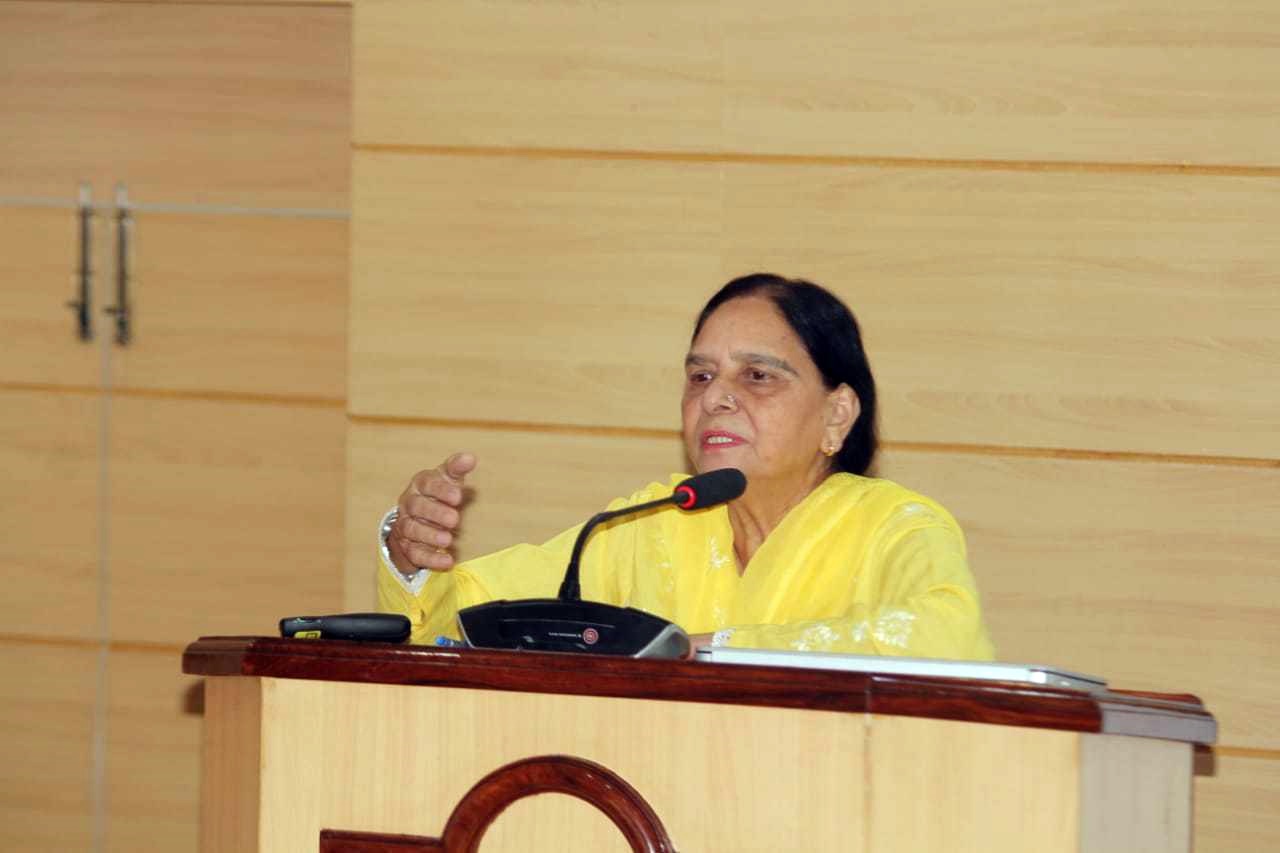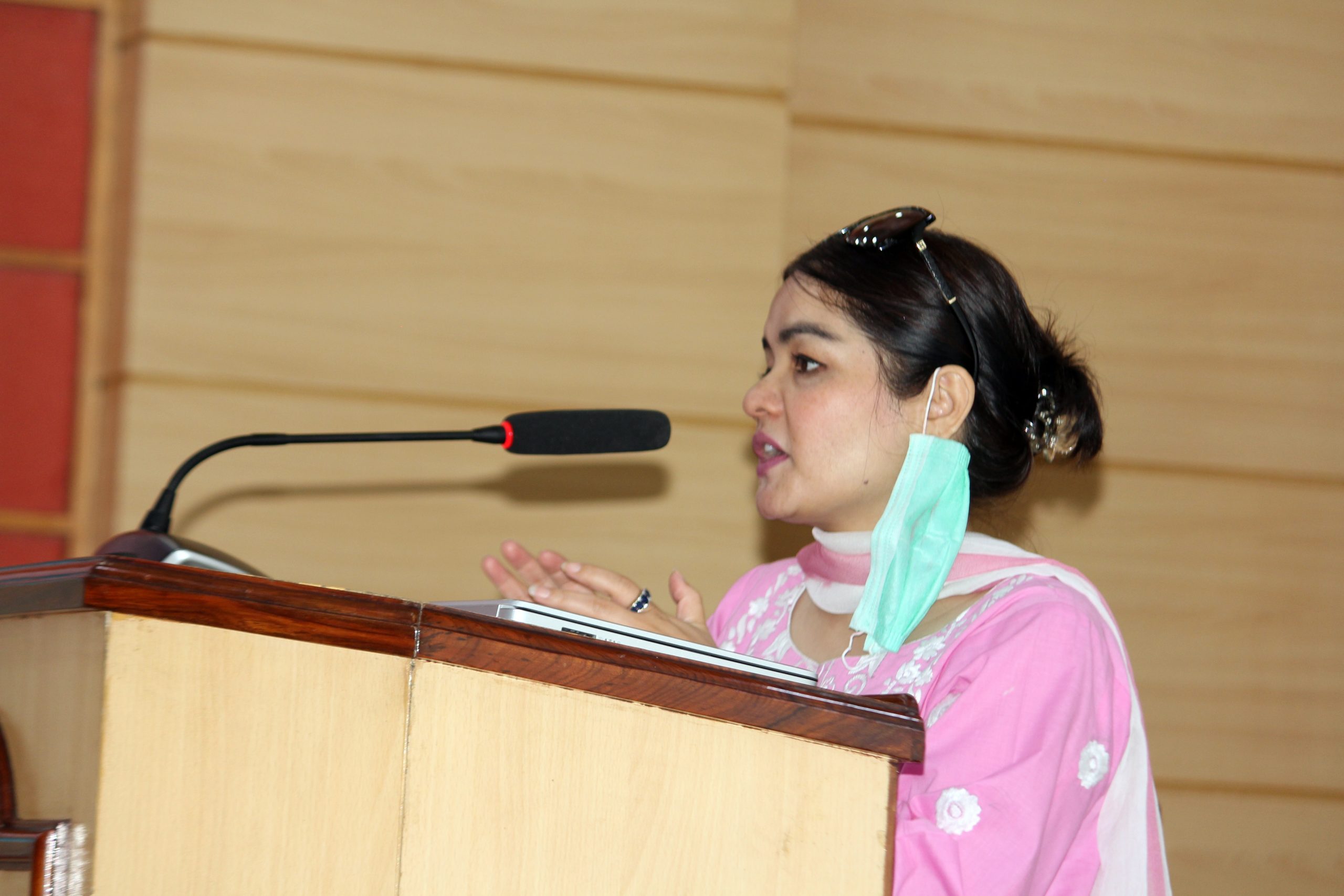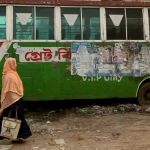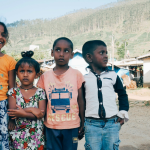“I remember coming to this university 12 years ago as a dancer, and today I am here on the stage discussing our rights. After twelve years, I want to share that as a dancer, I was badly humiliated, but today I am able to proudly say that I am a trans woman and deserve equal rights, respect, and dignity as you all have.”
Komal, Transgender Guru and Activist.
“As a trans person, I know it is difficult to become a doctor, scientist, engineer, or artist, but I am grateful to be pursuing my Masters degree in the art department at this university. Transgender individuals have ambitions, and they are now attempting to achieve them with dignity. Though we face problems at every stage, we use these challenges to our power and pledge to contribute to the socio-economic well-being of our country.”
– Abhishay, Trans student, Balochistan University of Information Technology and Management Sciences.
Transgender people experience prejudice, stigma, social isolation, and exclusion in all aspects of their everyday life, including in obtaining education, employment, healthcare, and housing. In Pakistan, the transgender community suffers significant threats to their safety and dignity. Transphobia is visible in our educational system, but no significant action is taken to address this prejudice, which is the major cause for trans students dropping out of school and having limited access to further education.
Ms. Ruqia Taj, Deputy Director of the Balochistan Social Welfare Department, stated that:
‘While my department is working to establish some rules for the rights of the trans community, such as demanding that the government build shelter homes and issue National Identity Cards without any gender discrimination, they have yet to give recognition to such rights on a policy level due to lack of funds and access to responsible people in power. The trans community has no job prospects other than begging, and no job quotas are reserved for them to work with dignity.’

Ms. Ruqia Taj, Deputy Director of the Balochistan Social Welfare Department.
Despite the fact that Pakistan passed its first national transgender rights legislation in 2018, provincial administrations across the country have yet to adopt legislation or policies to protect the fundamental and human rights of the trans community. Due to the lack of a provincial law, the trans community is subjected to not just emotional trauma, but also serious physical violence, including sexual assaults and death. They are denied access to public spaces and face discrimination because of their gender identity, which is why many trans people in Balochistan identify as male or female but not as a trans person.
Ms. Farkhanda Aurangzaib, provincial member of the National Commission on Human Rights, stated that:
“The federal government passed the “Transgender Persons (Protection of Rights) Act” almost four years ago, but the provincial assemblies have yet to act on it, nor have they used their power under the constitution’s 18th amendment to propose provincial legislation to protect the rights of Balochistan’s transgender community. It appears that our policymakers tend to be blind to the plight of the trans population, maybe because they do not have a large electoral base.”

Ms. Farkhanda Aurangzaib, Provincial Member of the National Commission on Human Rights.
On 27 May, Jalila Haider, iProbono’s Pakistan Country Representative, hosted a one-day sensitisation workshop on Pakistan’s Transgender Law and its Implementation at the Balochistan University of Information Technology and Management Sciences in Quetta. Roughly 120 students and staff members attended the session. This workshop, the second in our series of consultation events, was conducted in partnership with the Human Rights Commission of Pakistan, university faculty, and students. We discussed and informed students about-
- The challenges faced by the trans community in accessing education in general, and higher education in particular.
- The diversity of sex, gender, and sexuality and trans communities.
- The privilege and power structures that exist in society and how they affect disadvantaged populations.
The workshop concluded with participants agreeing that:
- Transgender people are citizens of the same country as everyone else, and they should have access to all public places, including educational facilities.
- The education department should develop a code of conduct that specifies that no student should be discriminated against because of their gender identity in order to lower the high percentage of trans student dropouts. It is the responsibility of educators to instil confidence in trans students.
- The Government should announce 2% quota and scholarships for transgender people at all universities in the province.
- Harassment of the transgender community should be addressed seriously, just as workplace harassment is.
- Transgender identities should be taught in schools, and teachers should be trained to accept transgender children as regular human beings in the same way they treat their other students.
- A joint declaration by the participants and the organisers was approved, calling on the government to establish a dedicated complaint cell for the trans community where they may lodge their complaints.
- The government should establish a 2% employment quota for transgender individuals, just as it does for other marginalised groups, and introduce at least one position for trans people in every educational institution.
- Scholars should conduct more research on the transgender population to eliminate gender-based bias in academia.
- Transgender people should have access to free health insurance, hormone therapy such as exogenous testosterone, and HIV testing and treatment.

Jalila Haider, iProbono’s Pakistan Country Representative.
Jalila concluded the workshop with the thought that while the Pakistani constitution declares ‘every person’s right’, injustices persist, and many identities remain at the bottom of the equality ladder. There are laws and conventions in place to protect the human rights of all minorities, including gender minorities, but they are rarely followed. It is time for students, who represent our society’s future, to speak up for everyone’s rights, including the rights of the transgender community, and to take the first step toward the recognition, protection, and identities of all marginalised groups, including the trans community, who are invisible in our social and legal structures.







